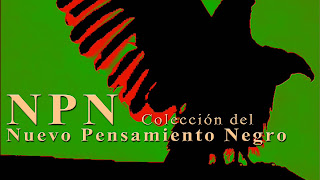One
question runs through the racial problem, and that is why blacks cannot solve
their political struggle; the obvious answer is that of the same political difficulty
they confront, but the obvious is never the right answer. The problem is then
why —behind that obvious— is so unsurmountable this political difficulty; and
then, the not so obvious answer may be that the nature of the struggle is in
the same nature of politics.
The
problem could be that not a black person is really interested in the racial but
in the political struggle; so the problem is not political then, but
existential, related to the specific people it affects. That means that black
people are really interested in personal advance, not political abstractions;
but the capital for that advancement is now ideological, so then the priorities
are distorted in function of the political.
This
struggle of black people —at least in America— is like that of the old Germans
in Rome, about development; but at that time the capital was military, leading
to the integration of German culture through feudalism. That would be why this
change in the nature of capital, from military to ideology is so important; weakening
the ability of the person to advance by itself, forcing people to strive
through ideological obedience.
Here
lies the other problem, less obvious still than that of the personal interest
in political advancement; and it’s the seudo religious nature of ideology,
appealing to the irrationality of inner feelings; like that of historial shame,
forceful integration of a social class and all that typical of Catholicism. It
was Catholicism —as the historical matrix of modern Christianity— what made
that change in the nature of capital; building the western society in the model
of Christian humanism, as the human Utopia from Constantin to Saint Agustin.
That
as human that utopia was Manichean —and
thus dialect— It is due to the origin of San Agustin; but the political nature
of this utopia was due to the origin of Constantin, from the rubble of Rome.
This is what black culture could change, but only as not conditioned by its
origin in those western contradictions; not matter if it’s born and formed from
that same contradictions, as ideology, in the anticolonial though; because with
this it only serves those western interests, that lies in their own contradictions
and not in our humanity.

Black
people can solve the political struggle only recognizing its nature, as cultural
—existential— and not political; because this way we can even shrink that
distorted nature of capital to its economic —not even military— function. The
primacy of religion on all this is its reign over ideology, but with ideology
un function of political order and not as capital; this subtlety is what escapes
to Christianity, because that Manicheism of Saint Agustin in his own distortion
of religiosity; but lies in the trichotomic —not dichotomic— nature of history,
as trialectic rather than dialectic.
This
other contradiction —as a dysfunctionality of philosophy— is natural though, born
in Modern rationalism; which was the peak of Christian Humanism, achieved in its
development from the 4th to the 15th centuries; but five centuries have passed
since the 15th, and three since the 17th, and it’s about time to
think on continual development. This is what the western culture can’t do by
itself, rebasing its own entropy, started with its own development; when a millennia
before Saint Agustin, Rome started its own rising, as the base of the western
civilization.

This
is why black culture is so important —as it was the Germanic— for that Western
civilization development; but only as long as this black culture can growth its
resiliency, appealing to its own sufficiency as political object; with its own existential
rather than political function, because is here where lies its consistency,
even is paradoxical. That means, turning to the economic advancement of its
people, that would shrink capital to its economic nature; but that’s even the
worst and biggest contradiction of Western culture, in the power struggle that
distorted its own beginnings.




















